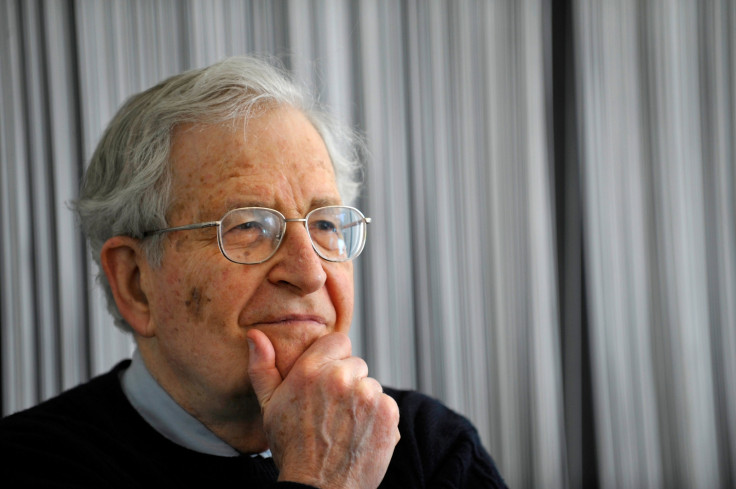Noam Chomsky: Buzzfeed and Vice are 'distorting free media' with native advertising

Renowned media scholar Noam Chomsky has declared that the Buzzfeed-style of clickbait journalism is a new form of propaganda aimed at "manufacturing consent" in the interests of elite, dominant groups in society.
The book Manufacturing Consent: The Political Economy Of The Mass Media by Edward S Herman and Noam Chomsky was first published 27 years ago in 1988 and remains one of the most-read texts in most media-related degree programmes around the world.
Much has changed in the media since then, with the 2010s seeing the demise of many traditional print publications, the introduction of the 24-hour news cycle and the rise of "click-bait" articles by new media organisations like Buzzfeed, Mashable and Vice, as well as listicle blog sites, like Clickhole, Distractify and The Poke.
These clickbait articles are shared on social media networks in the hope that the content will go viral and thus generate millions of site visitors, but some of the content is actually "native advertising", where an advertorial is disguised as genuine editorial content to trick the user into clicking on it.
Native advertising is distorting free media
However, Chomsky, who is currently an institute professor and professor of linguistics at Massachusetts Institute of Technology (MIT), feels that although there have been changes in the global media industry with the advent of the internet, the "Propaganda Model" he and Herman wrote about is still relevant, only with different filters.
"This [native advertising] is exaggerating and intensifying a problem that is serious and shouldn't even exist in the first place," Chomsky told crowdfunded independent journalism website Byline.com.
"The reliance of a journal on advertisers shapes and controls and substantially determines what is presented to the public... The very idea of advertiser reliance radically distorts the concept of free media."
Chomsky goes on to explain that there is no mistaking it – all modern commercial media are really businesses.
"If you think about what the commercial media are, no matter what, they are businesses. And a business produces something for a market. The producers in this case, almost without exception, are major corporations," he said.
"The market is other businesses – advertisers. The product that is presented to the market is readers (or viewers), so these are basically major corporations providing audiences to other businesses, and that significantly shapes the nature of the institution."
Businesses don't mind whistleblowing
While businesses always want to be presented to the public in the best light, Chomsky notes that whistleblowers, like Edward Snowden, have always been tolerated because they keep the government in check.
"The media do quite a lot of very good exposes on this, but the business world is quite willing to tolerate the exposure of corruption," he said.
"The business world is also quite willing to tolerate exposure of governments intervening in personal life and business life in a way that they don't like, as they don't want a powerful and intrusive state."
Chomsky also stressed that he personally felt the Charlie Hebdo cartoonists acted like "spoiled adolescents".
"Well, I think we should strongly support freedom of speech...but freedom of speech does not mean a lack of responsibility," he stressed, mentioning that the media is frequently irresponsible, such as when UK and US press supported the invasion of Iraq, which led to the sectarian conflict tearing the region apart today.
"I think [the Charlie Hebdo cartoonists] were kind of acting in this case like spoiled adolescents, but that doesn't justify killing them."
© Copyright IBTimes 2025. All rights reserved.






















